Like the late Rush Limbaugh, is State Senator TRAVIS HUTSON a big fat liar?
State Senator TRAVIS HUTSON LIED.
NOT ONE FARMER CONTACTED HIM ABOUT SOIL AND WATER CONSERVATION DISTRICTS. No documents support his alibi.
This bumptious bully is retaliating against First Amendment protected activity.
HUTSON doth protest too much -- his denials ring hollow.
His logic is faulty.
His motivations are obvious.
Is Senator HUTSON a crook and a walking conflict of interest?
This devious developer is a disgrace to the human race.
His SilverLeaf and his Soil and Water Conservation District flim-flams remind me of another bully, former Democratic Tennessee State Senator JOHN FORD, who was convicted of federal crimes and sent to federal prison.
From St. Augustine Record:
Don't call it payback: Florida lawmaker defends bill on obscure soil and water boards
Is it a developer-backed move to get rid of environmentalists and other progressives?
Several major northeast Florida developers — including one owned by the family of Palm Coast state Sen. Travis Hutson — invested tens of thousands of dollars to re-elect farmer John “Bucky” Sykes to the St. Johns County Soil and Water Conservation District two years ago.
The $43,000 war chest — which also included $15,000 from political action committees — was an unprecedented and extraordinary amount of money for a seat that pays no salary and has no regulatory authority.
It forced the challenger, outspoken environmentalist Nicole Crosby, to raise $3,000 of her own money to push back against Sykes’ professionally-run campaign with its glossy flyers and highway billboards.
And even though Sykes, the scion of a longtime St. Johns County farming family known for its annual corn maze, outspent Crosby by a 14-to-1 margin, she still went on to beat him 54%-46% — or by 11,000 votes.
A year later, Hutson filed legislation to eliminate all 56 soil and water conservation districts in Florida.
Crosby thinks the motive is more personal — because Hutson's candidate lost and she won.
Opponents of the measure have said it’s a developer-backed move to get rid of the environmentalists and other progressives who have been elected to these districts in recent years.
“It’s 100% retaliatory,” Crosby said in a phone interview with the USA TODAY NETWORK-Florida. “This farmer (Sykes) has become a pawn. I feel bad for him, he’s a hard-working farmer. But he got dragged into this.”
Which raises the question: if Sykes had won that election, would Hutson have drafted a bill to abolish the soil and water conservation districts in the first place?
Filing the bill had nothing to do with the outcome of that race or Crosby, whom he met once, at a legislative delegation meeting last year, said Hutson, a Republican: “She’d like to say this is about her, but it’s not.”
If this was a retaliatory action, he would have filed a bill to eliminate just the St. Johns Soil and Water Conservation District, Hutson said. "If I wanted to be vindictive, I would have done it that way."
The latest GOP legislative clampdown:Restricting eligibility for soil & water conservation districts
Restricting soil and water:Bill on soil and water districts now would let only farmers, ranchers sit on boards
Developers back candidate
Crosby said the force behind the bill is Hutson and his developer friends. They include John Peyton, president of Gate Petroleum and the former mayor of Jacksonville, Greenpointe Holdings, and other major developers responsible for Ponte Vedra Beach, Nocatee and other planned communities in northeast Florida.
Hutson’s family business is in the final approval stages for a 5,600-unit expansion on 2,300 acres in its Silverleaf community in St. Johns County. It's drawn lots of community opposition but won initial county commission approval on a 4-1 vote. Entities connected to Hutson Companies donated $10,000 to Sykes, records show.
Hutson said he had nothing to do with the political donations.
“He probably had a meeting with my father, but it wasn’t me,” said Hutson, who manages the Hutson Companies' charitable and civic activities. His father is chief executive officer of Hutson Companies, one of the largest land developers in northeast Florida.
Hutson also said Sykes has lots of connections among developers, whom he's leased land from for years until they are ready to build on it.
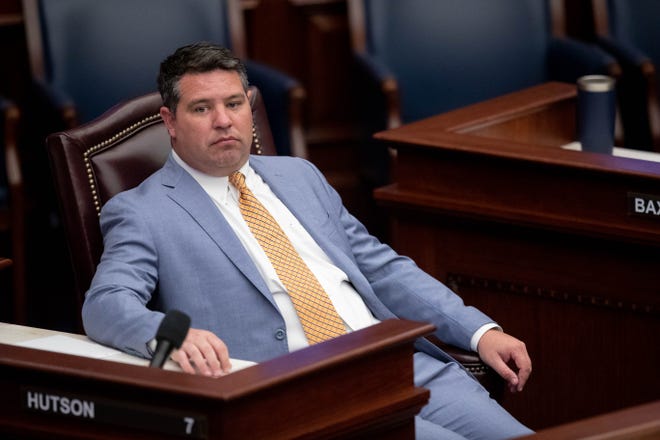
Crosby said she has never voiced one word of opposition to Hutson’s developments.
But she had successfully fought against a Gate Petroleum subsidiary's plan for 60 homes on 90 acres of environmentally-sensitive land known as the Outpost. Gate subsidiaries donated at least $7,000 to Sykes, records show.
“I had a well-known name fighting this Outpost for years,” Crosby said.
In her candidate questionnaire, published in the St. Augustine Record before the November 2020 election, Crosby made her feelings about development clear and the role her district could play.
“It’s time to expand the role of the Soil and Water Conservation District to include educating the public and motivating residents to become involved in hearings on development proposals,” she wrote.
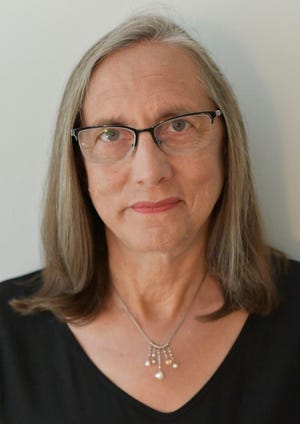
Knowing some people use the soil and water conservation district as a stepping stone to higher office, Crosby said, those developers “may have worried if I won this I’d run for county commission.”
The Sykes campaign is proof that money can't buy an election, Hutson said.
Bill introduced by farmer
Hutson said the bill wasn’t even his idea to begin with.
Fellow Republican and state Rep. Keith Truenow, a Tavares farmer who also owns an irrigation company in Lake County, asked Hutson to co-sponsor the bill back in October, he said.
There had been talk for years about abolishing the soil and water conservation districts, and after learning that several of the districts hadn't met in months or even years, Hutson agreed to support the measure in the Senate.
In committee meetings, Hutson said he heard from farmers from his district, which includes Flagler, St. Johns and part of Volusia counties, say they weren’t being adequately represented on the conservation districts.
Hutson said the boards should be all about agriculture and not expanded to include growth management and environmental issues outside of soil and water conservation.
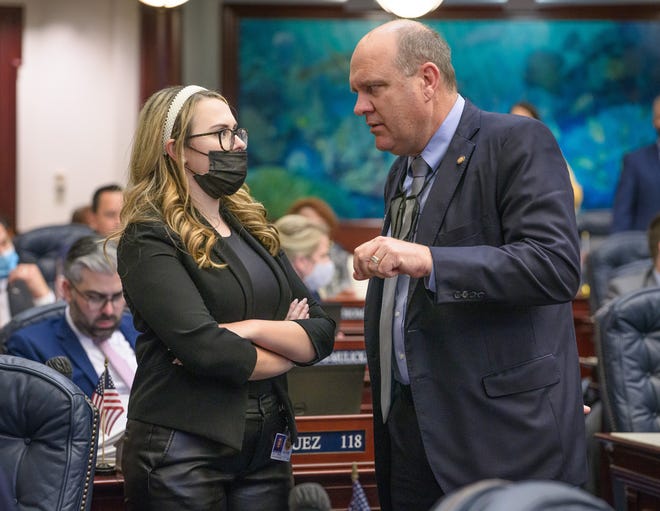
“Back when this was created, it was around the Dust Bowl times. The genesis was to educate farmers, bring grants to help them,” Hutson said.
Some boards have strayed from the mission of being specific to farmlands, he said. One news article mentioned a district supervisor discussing climate change. Another district voted to conduct an air quality study. And the association of conservation districts asked the Legislature to ban the release of helium balloons in the state, without any input from farmers.
“Those are clearly outside of the soil and water commission,” he said. “The intent is to make sure they have the farmers' best interests at heart.”
Amendment made to keep districts
Hutson has since made amendments to the bill to make it more palatable.
For one thing, he has scrapped the idea to abolish conservation districts altogether, and shifted his goal to ensure that all conservation districts are run by people with a stake in agriculture and ranching.
Still, it contemplates a process to eliminate conservation districts that no longer function or haven't met in over a year, he said.
Current language requires the districts to go through an administrative audit through the Florida Department of Agriculture and Consumer Services to see if they are “administratively practicable and feasible.”
The bill also requires the conservation districts be reorganized into single-member districts, with supervisors required to live in the district to which they are elected.
The bill also requires candidates to be in the agriculture business as defined by Florida law, or have spent at least 15 years in the business before retiring.
It also says if an eligible candidate who lives in the single-member district doesn’t file paperwork a week before the qualifying date, then anyone in the conservation district who meets the qualifications could run for the seat.
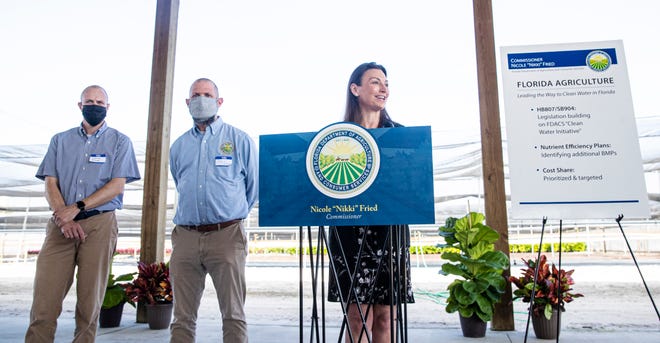
Hutson said he listened to what others had to say and made changes that the Department of Agriculture and the president of the Association of Florida Conservation Districts could support.
But opponents still say it is not broad enough, and excludes engineers, hydrologists, agronomists, educators and any other citizens who have an interest in soil and water conservation.
If approved, it would mean Crosby and people on dozens of other boards across Florida wouldn't qualify for re-election.
Meanwhile, Truenow’s House version retains the original language to abolish the districts altogether and consolidate their functions into the state’s five regional water management districts.
“Those (water management) districts perform those jobs quite well,” Truenow said.
He also said that in his experience, he doesn’t have much contact with the soil and water conservation district supervisors. Truenow also owns an irrigation company.
“My general experience with the soil and water conservation district is that it’s repeated with the Department of Environmental Protection and water management districts, so as I function, they don’t do or affect what I do.”
It cleared its first committee hearing Monday by a vote of 12-4 along party lines.
Hutson said he and Truenow have talked about sitting down to bring their versions closer together, but with the session running out of time he didn’t have much hope that either would cross the finish line because the bills are so far apart.
“There’s no guarantee it will pass,” Hutson said.
Jeffrey Schweers is a capital bureau reporter for USA TODAY NETWORK-Florida. Contact Schweers at jschweers@gannett.com and follow him on Twitter @jeffschweers.
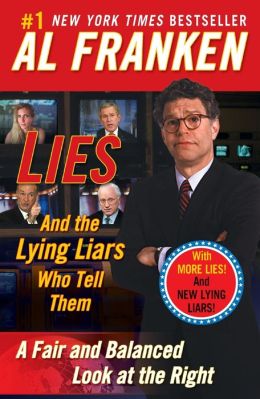

No comments:
Post a Comment